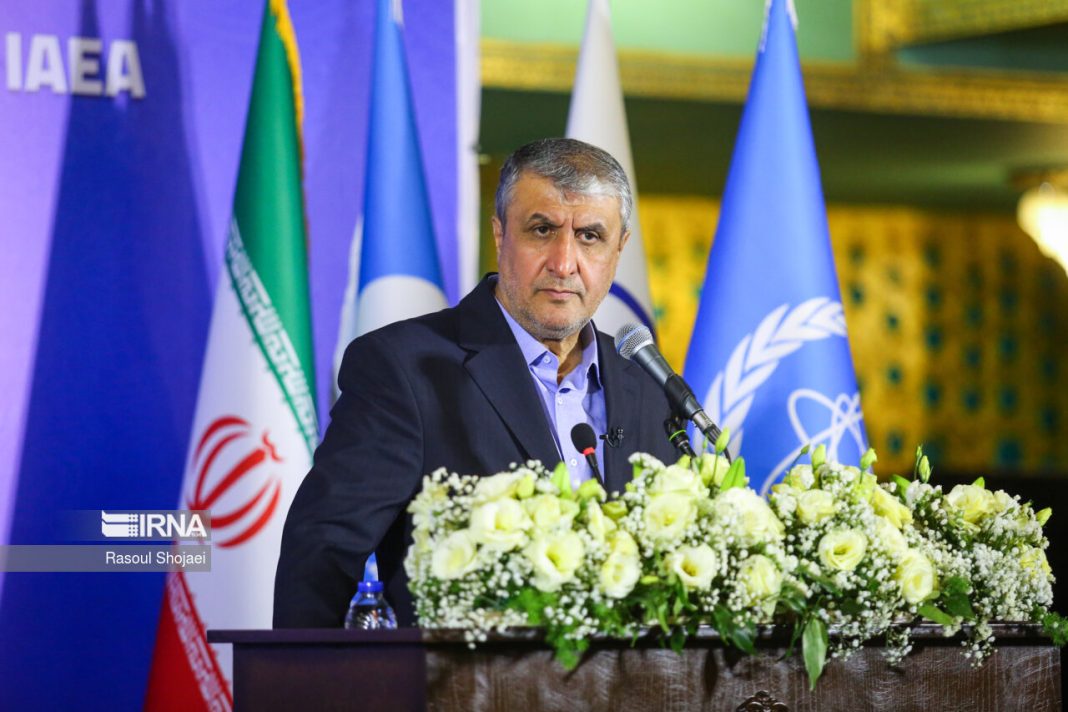Addressing a joint press conference on the second day of the International Conference on Nuclear Science and Technology, in the central city of Isfahan on Tuesday, Eslami said the joint statement signed on March 4, 2023 can still serve as the basis and the roadmap for interactions between the negotiating parties.
He said both sides are hopeful that the joint statement can resolve the remaining issues and they agreed to take concrete and operational steps to implement it.
Eslami said Iran will continue interactions with IAEA over unresolved issues, including issues regarding two nuclear sites about which the IAEA has voiced concerns.
Meanwhile, Grossi said the UN atomic agency has offered Iran a proposal to continue cooperation and resolve outstanding issues, adding both sides need to take practical steps to that end.
The IAEA chief sought to assure that the atomic agency will not be influenced by any Israeli or Western pressure over Iran’s nuclear case.
Grossi also said efforts should be made to resuscitate the landmark 2015 nuclear deal between Iran and the West, known as the Joint Comprehensive Plan of Action (JCPOA), or an alternative deal to Iran’s liking.
